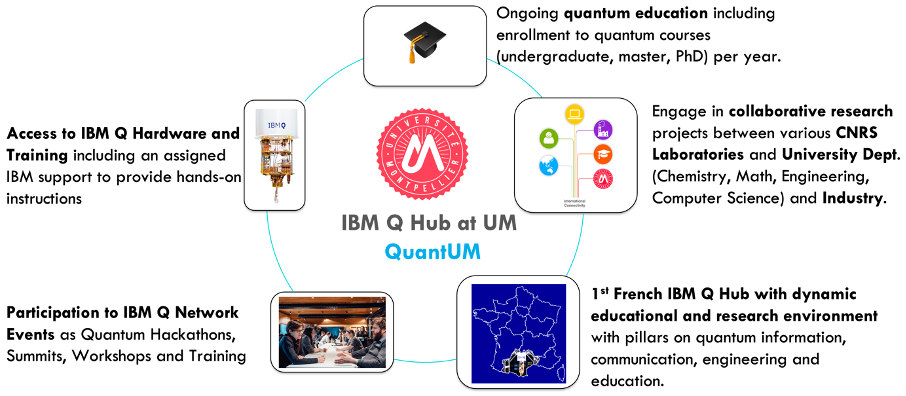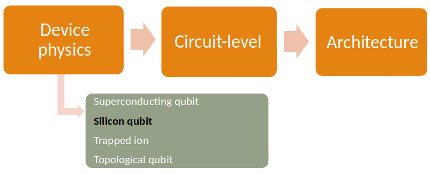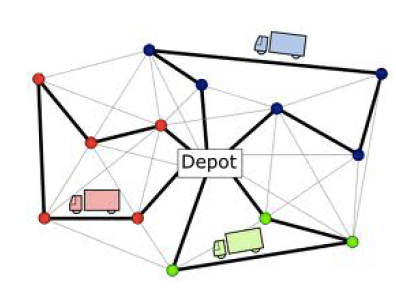
1. Quantum Computer Aided Design (QCAD) for Quantum Circuits
Description: This topic focuses on learning the superconducting device and developing a quantum computer aided design for superconducting and silicon-based device. The first objective is to perform simulation of superconducting device and circuits available from IBM Qiskit. Then, develop compact model and QCAD framework. Finally, perform hybrid quantum-classical simulation for error-correction. Currently, we are working on qubit mapping problem for NISQ hardware. It aims to solve the mapping problem between physical and logical qubits according to the hardware topology.
People involved: Siyuan Niu, University of Montpellier and Dr. Aida Todri-Sanial, CNRS, FR

2. Quantum Algorithms Applied to Scientific Computing
Description: Quantum computing is herald as the next revolution in scientific computing. This research focuses on applying quantum algorithms to scientific computing problems in order to circumvent the bottlenecks imposed by classical computing. The first target will be to solve linear systems that arise from scientific computing problems on a NISQ quantum computer and analyze the potential gain with respect to classical architectures and the bottlenecks that might appear with the quantum approach. The tools and algorithms developed will then be used to solve more complex problems such as partial differential equations or quantum machine learning.
People involved: Adrien Suau, University of Montpellier, Dr. Aida Todri-Sanial, CNRS, Dr. Gabriel Staffelbach, CERFACS, Dr. Eric Bourreau, University of Montpellier and Dr. Florent Bruguier, University of Montpellier.
3. Real Instances of Combinatorial Optimization Problem Solve with Quantum Computing
Description: Since 20 years [Grover96], a theoretical way to use superposition and entanglement power were design to tackle combinatorial explosion in optimization problem. First a 3-SAT algorithm can be model (and implement with Qiskit), then, as in the history of combinatorial optimization [Karp 72] we can derive new problems (vertex cover, travelling salesman problem, graph coloring) from sat formulation. Our goal is to design such algorithms and evaluate them practically on real life IBM Machines (and simulator) to predict computation behavior in the future.
People involved: Dr. Eric Bourreau, University of Montpellier and Julien Rodriguez, University of Montpellier
